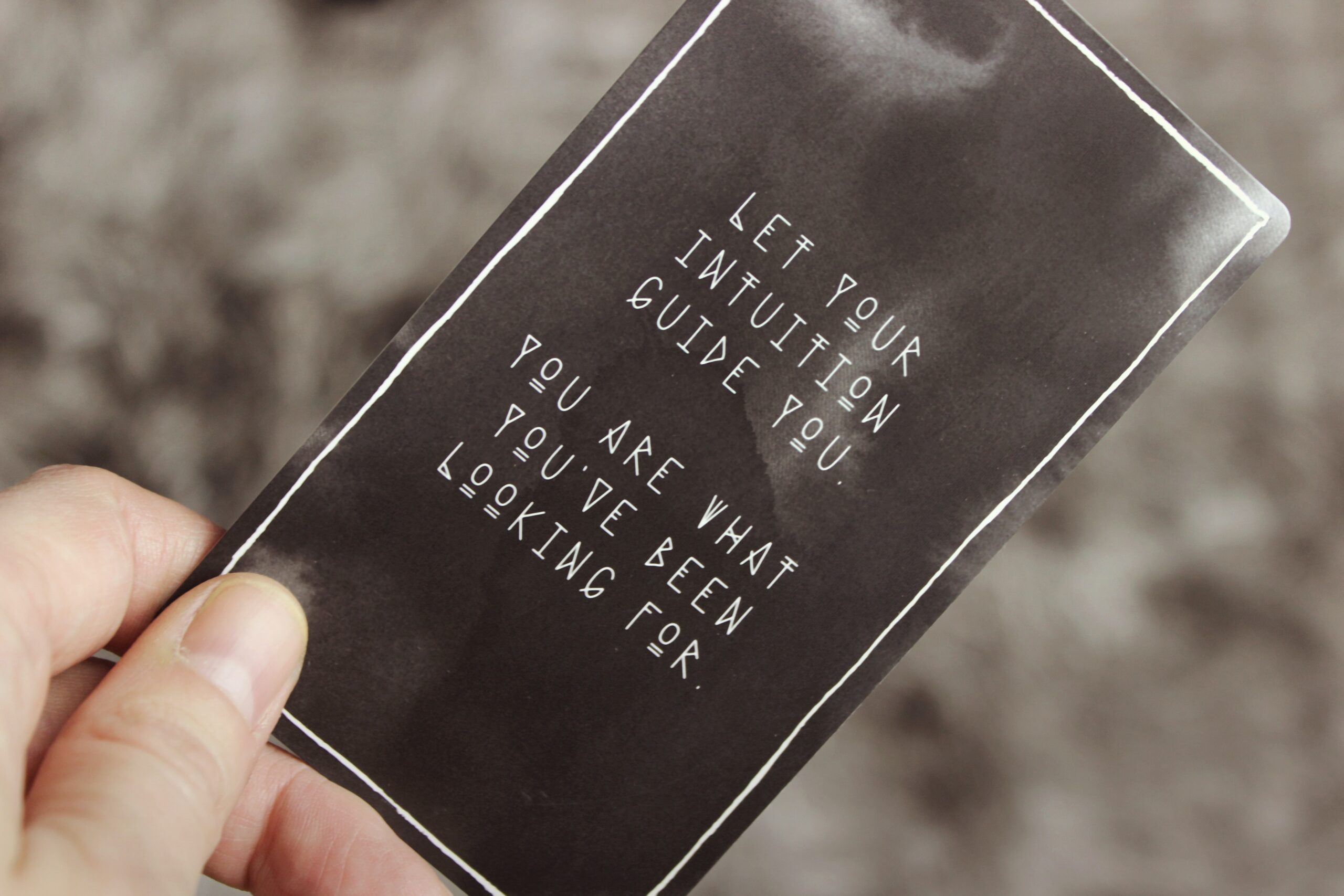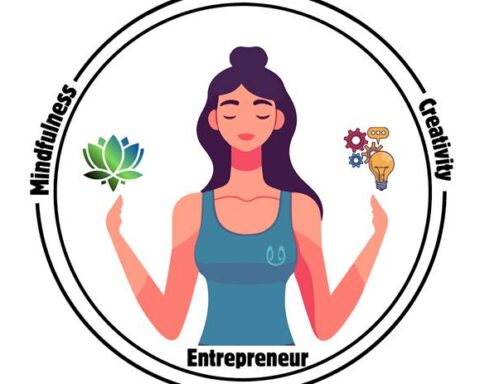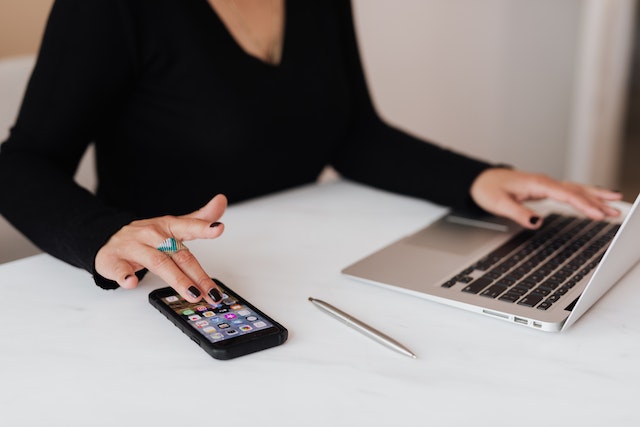Intuition is a powerful tool that can help you reach your goals, connect with loved ones, and live your best life. But how does it work? In this article we’ll explore what intuition is and how to use it for your benefit.
Trust yourself.
When you trust yourself, you can rely on your own internal compass to guide you. It’s like having a built-in GPS system inside of you that will point the way toward what is right for you.
Once we learn how to listen to our inner voice and trust ourselves, we can make better decisions in life because these choices are coming from a place of wisdom rather than fear or anxiety.
When we make decisions based on intuition instead of logic, they often lead us down unexpected but necessary paths that help us grow as individuals and become more self-aware people overall.
Know that your gut feeling is a wise teacher.
Your gut feeling is a good teacher. You should listen to it, and trust what it has to say. The more you learn about the power of intuition, the more you’ll realize that relying on your intuition is like reaching out to an old friend who has always been there for you.
Learn from your mistakes.
When you make a mistake, don’t be afraid to admit it and learn from it. If someone gives you feedback on something that could have been handled better or differently, thank them for their input and try to avoid making the same mistake again. And when somebody criticizes you for an action that was wrong or hurtful, take responsibility for whatever role(s) were yours in causing the situation (even if it wasn’t entirely your fault).
Take some time to listen to your gut and check in with it on a regular basis.
It’s not easy to know when to trust your intuition, but if you’re feeling a strong sense of discomfort about something, it’s usually worth paying attention. We may think we know what our gut is telling us and try to ignore it, but ignoring our intuition can lead to disastrous consequences.
Here are some tips on learning how to listen and communicate with your intuition:
- Learn how to check in with yourself. Intuitive intelligence is all around us, so taking time to simply “feel” could help guide you toward an answer or solution that you couldn’t see before. The more aware we become of this part of ourselves, the better prepared we will be for future challenges in life that require our full attention and focus
- Ask questions that allow space for curiosity rather than answers based on knowledge or experience alone—this allows for new perspectives on any given situation (or problem) which may lead directly into finding solutions!
Think of your intuition as the voice inside you that guides you.
Intuition is the voice inside you that guides you, and it can help you achieve your goals if you listen to what it says. It’s your inner voice, the voice of your soul. You don’t have to learn how to use intuition—it’s there naturally, but it takes practice to tap into it properly. Trusting yourself enough to follow through with any decision that comes from this inner guidance instead of what other people tell you will strengthen your intuitive abilities over time.
Learn how to listen to your intuition.
Intuition is just a fancy word for gut feeling, and it’s a skill that everyone has. But it’s one that many people don’t know how to use. We don’t realize our intuition is there until we learn how to recognize its signals and then actually follow them for once! If you want an easy way to get started with this, notice the subtle hints that appear in daily life when you go against your gut instinct—you may find yourself being late because you didn’t want to leave earlier than planned, or making decisions based on fear rather than wisdom because they’re easier than trusting yourself, or even missing out on great opportunities because they felt too risky.
- Trust yourself more often. The first step toward trusting yourself more often is identifying situations where not following your intuition has caused problems in the past; these are called “lessons learned” by psychologists who specialize in helping people improve self-trust (and other aspects of mental health). Once you see those patterns happening again and again, consider if there’s anything about them worth changing—maybe going ahead with something despite having reservations about it would be better than missing out on something great?
Know that when you go against your intuition, it may have negative consequences.
If you ignore your gut instinct, it may have negative consequences. You may miss opportunities or make bad decisions. If you ignore your instincts, you could end up in an unsafe situation. For example, if you ignore a feeling that something is wrong with someone else’s behavior and continue to do business with them anyway, then you’ll likely find yourself dealing with problems later on.
You must also be aware that when we go against our gut instinct it can have negative psychological effects as well. The more we go against what we believe is right or wrong for us personally (our intuition) the more stressed out we become over time because our mind keeps telling us “this isn’t right!” It’s important to know not only how important intuition is but also how much value there is in listening closely to what it has to tell us!
Don’t confuse intuition with fearfulness, paranoia, jealousy, or a sense of superiority.
- Intuition is not the same as fear. It’s not the same as insecurity or arrogance either. You can have an intuitive gut feeling that something is wrong or that someone isn’t telling you the whole truth, but it doesn’t mean they’re out to get you or that they think they’re better than you because of their status in life.
- Learn to distinguish between your own thoughts and feelings versus those influenced by others or negative self-talk (e.g., “I’m such a loser”, “Everyone hates me”). Negative self-talk can keep us stuck in our heads instead of moving toward our goals because we’re so busy concentrating on how bad things are instead of how good we want them to be
Trust the insight of others.
Your intuition is a powerful tool. However, it can be difficult to trust your own inner voice because you might feel like you’re making things up in your head or that what you’re hearing is just simply wrong. You may also find yourself battling with self-doubt and fear when using your intuition instead of trusting the wisdom within yourself.
However, if you practice using this tool over time then it’ll become easier for you to trust your gut instinct when making decisions in life. As we mentioned before, it’s important to listen carefully so that your mind doesn’t fill in any blanks or jump to conclusions without actually processing what someone else has told you firsthand (or secondhand). This will help keep things clear and prevent misunderstandings from happening later down the road.
If you trust the wisdom of your gut instinct and learn how to listen to it, then you can use it as a powerful tool for success and happiness
Knowing how to use your gut instinct is important. It can help you make better decisions, avoid danger, and even improve your relationships with others.
So how do you do that? The first step is learning how to trust your natural instincts. When it comes to trusting our instincts, we have two options: we can either listen to them or ignore them. When we ignore our natural instincts by choosing not to listen or act on what they tell us, we’re essentially ignoring a part of ourselves—and that only leads us further away from being able to trust ourselves in the future.
If you want more control over your life and happiness levels (which I’m sure we all do), then learning how to trust yourself should be one of your top priorities. The next time you have a gut feeling, don’t ignore it. Instead, pay attention and listen closely to what it has to say. In this way, you can use your intuition to make better decisions as well as live a more fulfilling life.
Keetria is an entrepreneur, wellness advocate, and brand strategy coach for creatives & entrepreneurs with 16 years of public relations expertise working with some of the world’s leading brands, startups, media personalities, and entertainers. If you would like to work together, don’t hesitate to reach out!









